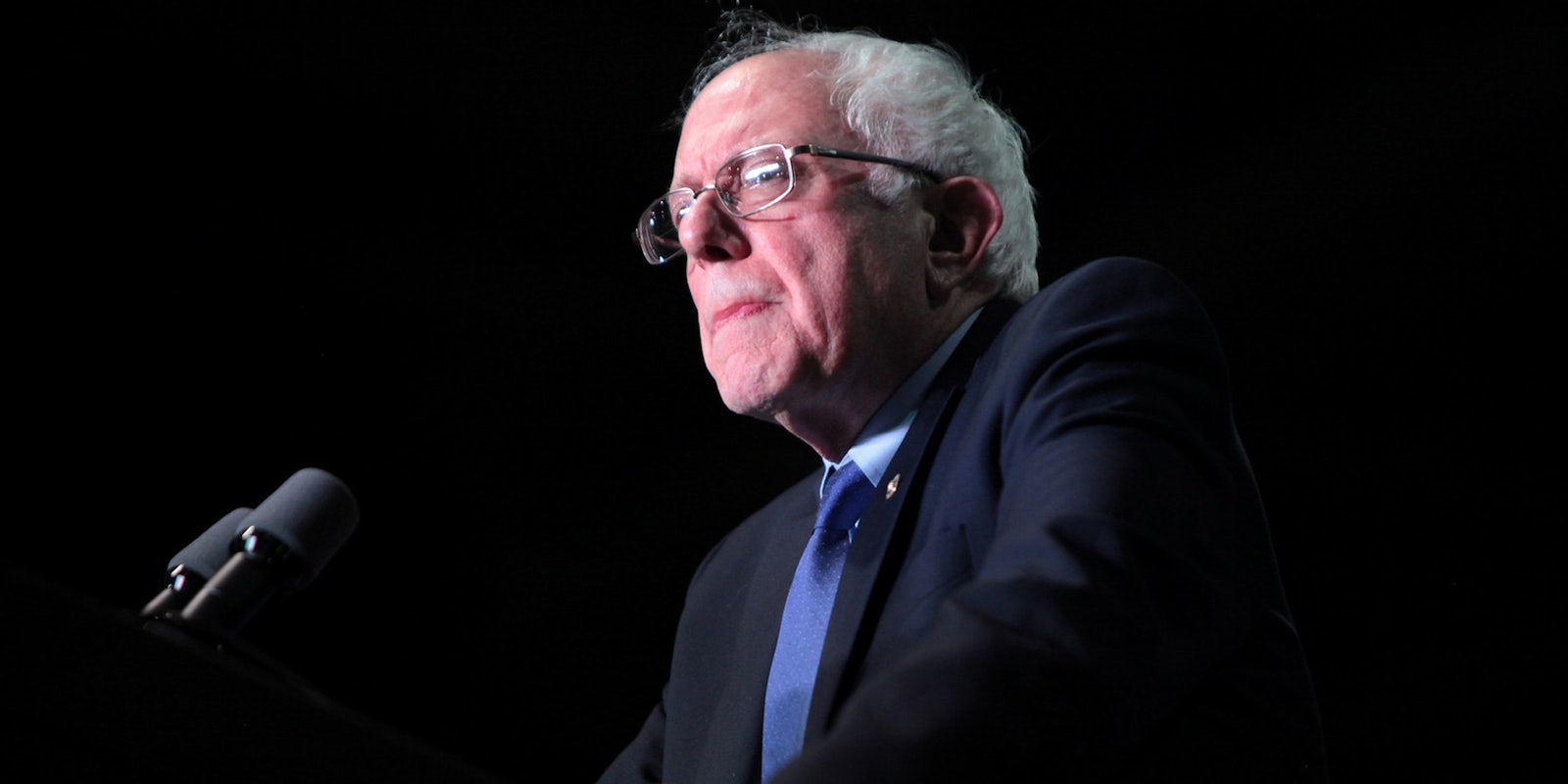Bernie Sanders continued his winning streak on Saturday with a decisive win over rival Hillary Clinton in the Wyoming Democratic presidential caucus.
Sanders was largely favored to win Wyoming. The Western state is primarily a Republican stronghold, and only 20 percent of the population are registered Democrats.
Sanders’s Wyoming win follows victories in Idaho and Utah on March 22; Alaska, Hawaii, and Washington state on March 26; and Wisconsin on April 5.
With only 14 delegates (and four superdelegates, who may change their vote at any time ahead of the Democrats’ July convention), Sanders’s Wyoming win furthers his momentum but does little to close the 219 pledged delegate gap Clinton holds over the independent senator from Vermont.
Not including Wyoming’s delegates, which will be divided proportionally based on each candidates’ percentage of the vote, Clinton has earned 1,298 pledged delegates to Sanders’s 1,079, according to the New York Times tally. The former secretary of state also has support from 469 superdelegates, while Sanders trails with just 31 superdelegates in his camp. A Democratic candidate needs 2,383 total delegates to secure the party’s presidential nomination.
The Wyoming caucus is a precursor to a major month ahead for both the Democratic and Republican candidates, who will face off on April 19 in New York, where both Sanders and GOP front-runner Donald Trump grew up and where Clinton served as U.S. senator from 2001 to 2009.
The New York primaries are followed by April 26 contests for both parties in Connecticut, Delaware, Maryland, Pennsylvania, and Rhode Island.


